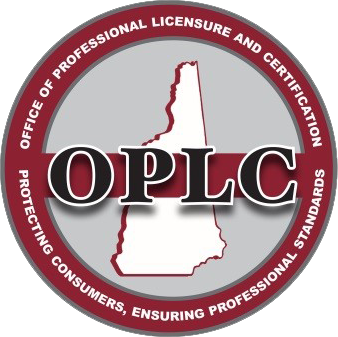Board of Medicine Physician FAQs
Frequently asked questions received by Physicians.
- Who is on the Board of Medicine?
- Who is on the Medical Review Subcommittee?
- What does the Board of Medicine do?
- What happens initially after a complaint or suit reaches the Board?
- What is the range of recommendations the MRSC might make to the Board?
- What happens after the Medical Review Subcommittee makes its recommendation?
- What is the range of Actions which the Board might take?
- What does a Public Disciplinary Hearing or Settlement mean and what is involved?
- Do I have the right to legal counsel at any point in this process?
- What is reported to the Data Bank?
- Who is on the Board of Medicine?
-
The Board of Medicine is composed of 11 volunteer members: six physicians, one physician assistant (PA), three non-physician public members, and the Commissioner of Health and Human Services or the commissioner's designee. Board members are appointed by the Governor with the advice and consent of the Executive Council and serve up to two five-year terms.
- Who is on the Medical Review Subcommittee?
-
Complaints are sent to a subcommittee, called the Medical Review Subcommittee or MRSC. The MRSC is comprised of different members than the Board, and is composed of 11 volunteer members: six physicians, one physician assistant (PA), three non-physician public members and the vice-president of the Board. MRSC members are appointed by the Governor with the advice and consent of the Executive Council and serve up to two three-year terms.
- What does the Board of Medicine do?
-
The Board of Medicine has regularly scheduled monthly meetings during which:
- The Board evaluates physicians and physician assistants who apply for licensure; the Board licenses those who are found to be qualified.
- The Board investigates and evaluates existing licensees through the MRSC; the Board commences disciplinary action accordingly.
- The Board investigates and prepares reports that are necessary under the law.
- The Board takes action against persons engaged in the unauthorized practice of medicine.
- The Board promulgates administrative rules.
- The Board assesses fees.
- What happens initially after a complaint or suit reaches the Board?
-
- If the Board receives a complaint, or if a lawsuit or reservable claim is reported to the Board, the Board staff triage the complaint or suit to the Medical Review Subcommittee (MRSC). The MRSC members meet once a month for regularly scheduled meetings. The MRSC then assigns that case to one of its members, who is responsible for examining relevant documents (hospital or office records, billing records, pharmacy and prescription records, etc.)
- If necessary, the Board investigator (a State employee assigned to the Board of Medicine) may interview witnesses, visit an office, or conduct other appropriate investigations.
- Also if necessary, the MRSC may ask a physician, deemed by the MRSC to have an expertise in the appropriate specialty, to review the case, render an opinion, and draft a Report of Investigation.
- Of great importance, the physician against whom a complaint or suit is brought is asked to respond. That response is crucial, because it allows the physician to explain in detail what happened and answer the complaint directly. Some physicians choose to have a lawyer respond, but the majority write the letter themselves. The Board appreciates a detailed and explanatory letter covering all aspects of the case or complaint.
- The case is then presented to the entire MRSC, which, by majority vote, makes a recommendation to the Board.
- What is the range of recommendations the MRSC might make to the Board?
-
- The MRSC might recommend "no further action," which means the allegations presently based on information received do not rise to the level that warrants further disciplinary proceeding, remedial action, or Board intervention. Additionally, it must be noted that the Board has the ability to review patterns of conduct – or a cumulative effect of conduct without time limitation. As such, the Board has the discretion to reexamine allegations in a complaint, pursuant to RSA 329:18-a,III, even if it has previously declined to conduct a disciplinary proceeding. The Board keeps the information gathered during an investigation on file in the event that further information is received for review.
- The MRSC might recommend a Letter of Concern (LOC) which is a non-disciplinary confidential letter to the physician warning him/her that his actions in that case are questionable, and he/she needs to modify those practices which led to the problem. An LOC is non-public and does not require a hearing before the Board can issue it. (New Hampshire Revised Statutes Annotated 329:17,VII-a). The LOC is not reported to the National Practitioners Data Bank, and its issuance is not disclosed to the complainant.
- The MRSC might recommend a hearing for discipline (explained in next faq)
- What happens after the Medical Review Subcommittee makes its recommendation?
-
- That recommendation is considered by the Board at its next regularly scheduled meeting.
- Prior to each Board meeting, the Board receives a packet of information, including a stack of Reports of Investigations. Each Board member is charged with reading each ROI, which includes the summary of the case from the MRSC, along with the complaint, suit or claim and the response letter from the physician/ licensee. Thus, a timely response letter from the physician or physician assistant against whom the complaint or suit is brought is crucial, in that the entire Board reads this information.
- The Board then decides by majority vote on a course of action.
- What is the range of Actions which the Board might take?
-
The Board may decide:
- That the complaint is unfounded or frivolous, in which case no action is taken. Examples are when the complaint does not fall within the jurisdiction of the Board or does not relate to the actions of the licensee.
- That no further action is necessary, which means the allegations presently based on information received do not rise to the level that warrants further disciplinary proceeding, remedial action, or Board intervention.
- That a confidential Letter of Concern be issued to the licensee. As described above, an LOC is non-disciplinary and confidential. The Board uses it when there is insufficient evidence to support disciplinary action but where the Board believes that a continuation of the activities which led to the information being submitted to the Board may result in Board disciplinary action. A LOC is not reported to the Data Bank, requires no public hearing, and its issuance is not divulged to the patient or complainant. An LOC is a warning from the Board to the licensee that the physician or physician assistant needs to look carefully at his/her practice and modify or eliminate certain practices to avoid another similar problem or complaint.
- That because of the allegations of professional misconduct or of violations of the Board's statutes, rules or the AMA Code of Ethics, a public disciplinary hearing or settlement is necessary.
- What does a Public Disciplinary Hearing or Settlement mean and what is involved?
-
- The Board votes to initiate an adjudicatory proceeding if it believes, based on the MRSC Report of Investigation, that professional misconduct or a violation of the Board's statutes, rules or the AMA code of Ethics may have occurred. Pursuant to this vote, the Board's Hearing Counsel will present a draft Notice of Hearing to the Board. The Board then votes on issuing the draft Notice of Hearing. At that point the matter becomes public.
- At the Board's meeting, on the dates specified in the Notice of Hearing, a hearing is held to determine facts of the case. There are usually two sides to the hearing: the Board's Hearing Counsel presents evidence and witnesses to prove the charges; the licensee may present evidence and witnesses to disprove them. It is a fair hearing: the licensee has notice of the charges against which he/she is defending, the licensee has the opportunity to respond, present evidence, cross-examine witnesses and submit arguments before the Board.
- After a hearing, the Board deliberates in non-public session. The Board's decision does not become final or public until it is reduced to writing and served upon the parties. The Board may find that Hearing Counsel has not proved its case by a preponderance of the evidence or the Board may make an affirmative finding that the licensee has committed unprofessional conduct or a violation of its statutes, rules or the AMA Code of Ethics. If the Board finds the latter, it may impose disciplinary action. Disciplinary action may be anything listed in RSA 329:17,VII, including the following: a reprimand, a fine, a suspension of license, a revocation, a requirement for remedial education, or any combination of the above.
- If the physician wishes to avoid a public hearing and settle the complaint, he/she may sign a settlement agreement that is negotiated with the Board's Hearing Counsel and may include any of the items listed in RSA 329:17,VII. This settlement agreement is then presented to the Board to accept or reject. If the Board accepts it, the settlement agreement becomes public.
- Do I have the right to legal counsel at any point in this process?
-
- Yes. You may retain legal counsel from the very beginning, when the MRSC is gathering facts before making a recommendation. Or, you may involve your lawyer later in the process. Any party in an adjudicatory proceeding may be represented by counsel, but an attorney appearing on behalf of a party shall first file a letter announcing the fact of representation at the earliest date practical. Parties shall retain counsel at their own expense and requests for appointment of counsel shall not be entertained.
- What is reported to the Data Bank?
-
- A disciplinary action resulting from either a public hearing or a settlement is reported to the National Practitioners Data Bank, which is a federal entity which the Board is mandated to report to by law. The Division of Practitioner Data Banks (DPDB) is responsible for the implementation of the National Practitioner Data Bank (NPDB) and Healthcare Integrity and Protection Data Bank (HIPDB). The NPDB and HIPDB are alert or flagging systems intended to facilitate a comprehensive review of the professional credentials of health care practitioners, providers, and suppliers.




